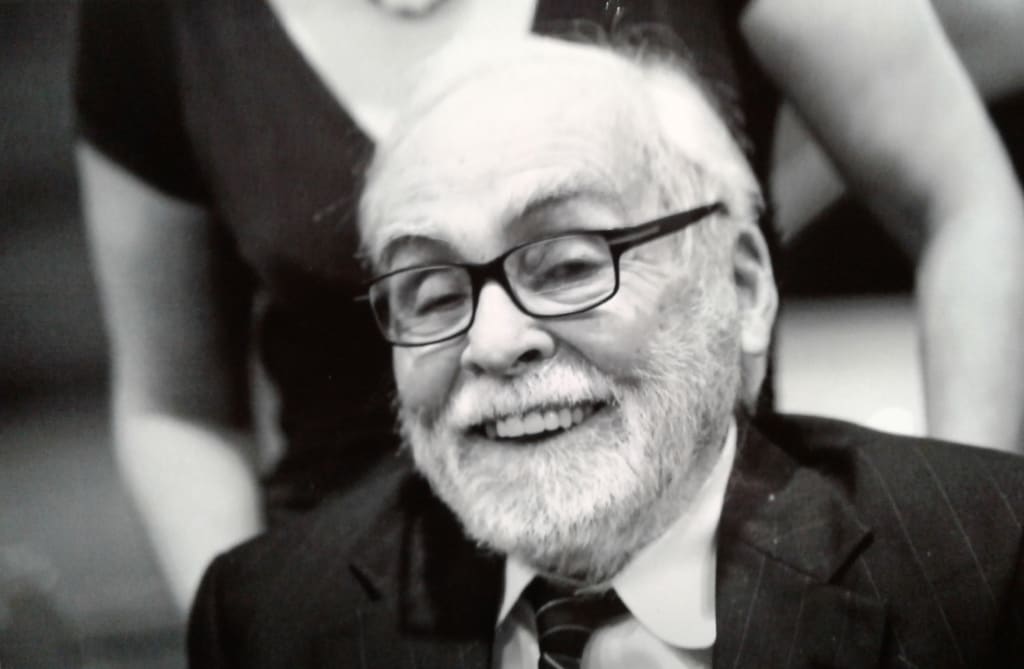
In Stigma, Erving Goffman observes that “in an important sense there is only one complete unblushing male in America: a young, married, white, urban, northern, heterosexual Protestant father of college education, fully employed, of good complexion, weight and height and a recent record in sports.” That was never my father. However, I would argue that my father was a man in all the ways that matter.
He was strong, yes. He played sports, went to college, got married (three times - I guess he was an overachiever in that way), and had a good complexion. But he was short, Catholic, overweight, and old before I was born. Although he grew up in an urban environment, he moved from there to the suburbs and, eventually, to a small, rural town in the middle of nowhere. Most importantly of all, however, he quit his job to stay home and raise us. I always got the sense that he felt like he had missed out on the childhoods of his older sons, and didn’t want to repeat that mistake with us.
He wasn’t always perfect, of course, but he was an amazing stay-at-home parent. He comforted us when we were upset or injured, made us food when we were hungry, took us to all of our appointments and games and activities, and tucked us into bed with a story each night. I never had to ask myself whether or not he loved us, because he showed it every day. Nor did I ever think my mother, or any other woman, would have done a better job.
Sometimes, he could be remarkably sensitive to our needs in ways that weren’t immediately obvious or apparent. One thing, in particular, always stands out to me when I think about how caring he was. Growing up, he always called me “June Bug.” For those who have never seen a June Bug outside of cartoons, they are incredibly ugly beetles. I didn’t mind the nickname coming from him: he had used it since before I knew what it meant, so it always sounded sweet when he said it. I did not, however, allow anyone else to use it. In my late twenties, I casually discussed this with him, making sure to mention that I still liked when he used it. Many years later, I woke in the middle of the night to the realization that he hadn’t used the term since that day. Why hadn’t I noticed sooner? Because he’d swapped it out with “June Bun” and, later, “June Bunny.” My father had considered my disgust for June Bugs and found a way to remove them from our interactions without taking away the positive feelings associated with the nickname. That was my dad.
When my sister ran over his motorcycle, he went outside, enraged, lifted the back of her pickup truck, and pulled his bike out from under it. That was my dad, too.
When my mother decided to give birth to me at home, my father did the research necessary to act as her midwife. He stood in that room with her for hours on end, holding her hand and reassuring her until they finally decided that they might need to go to the hospital, after all. He helped her stand up. But then, when I came into the world with a contraction that knocked my mother off her feet and sent me flying into the air, his years of sports training kicked in and he caught me like a football pass in the end zone. All of that was my dad, too.
We often think of gender studies as a “women’s subject,” but people like my dad prove to us that gender isn’t something that belongs exclusively to women. Manhood, too, is socially defined and has changed through time. Men, too, must question what that word really means to them and to their families. More than anything else, people like my father prove that there isn’t just one way to ‘be a man.’ Men, even ‘real men,’ can express positive emotions. Men can comfort and hug and even cry without losing what it is that makes them men. If my experience is any indication, what makes a man a ‘good father’ isn’t his physical prowess, his education, his income, or his stoicism. What makes him a good father is the way he loves and cares for his children. And, if loving and caring are requisites for being a good father, aren’t they important to being a good man, as well?
About the Creator
June A Demus
I grew up in a small farming town, exploring the woods and caring for animals with a book in my hand. Although I now live in the suburbs, I never stopped loving animals and open spaces, not to mention good stories.






Comments
There are no comments for this story
Be the first to respond and start the conversation.